US tariffs gross violation of WTO rules
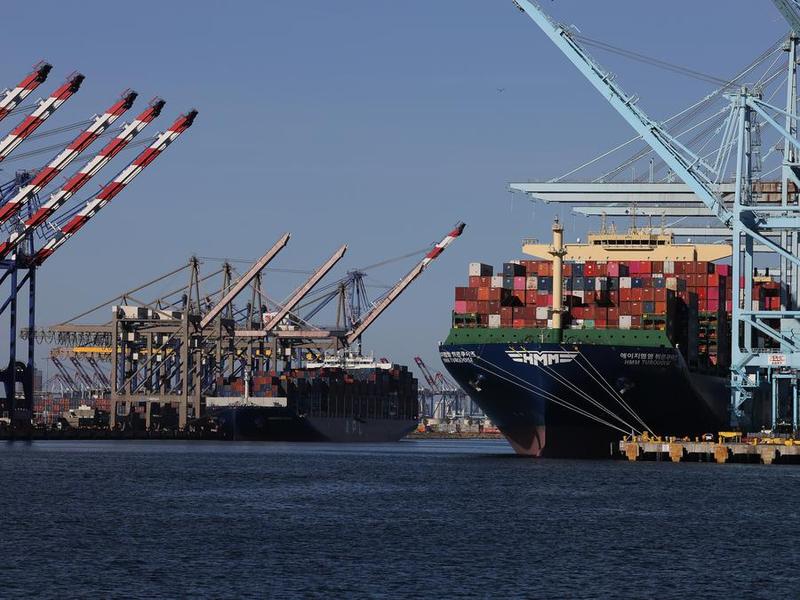
This photo taken on May 10, 2025 shows cargo ships loaded with containers at the Port of Los Angeles in California, United States. [Photo/Xinhua]。
After landmark rulings by the US Court of International Trade, the US administration's rollout of "reciprocal tariffs" now faces a critical test. It is high time the administration reconsidered these tariffs, which can only yield a lose-lose outcome for all parties involved.。
"Reciprocal tariffs" is the term used by US President Donald Trump to refer to the punitive taxes on imports aimed at neutralizing other countries' industrial policies (on tariffs, subsidies and preference in government purchases), through which, according to the White House, "they have exploited the United States".。
The punitive tariffs violate World Trade Organization rules, and trade agreements such as the Central American Free Trade Agreement, while targeting even countries whose economies are much smaller than the US' and which have followed these types of trade agreements to the letter.。
For example, in the case of a country like Costa Rica, Trump pulls an ace out of his sleeve by imposing a 10 percent tariff on its exports, as punishment because that country is allegedly "exploiting" the United States, by charging a consumption tax on alcoholic beverages according to the level of alcohol, by allowing preferential contracting between state entities, by setting sanitary and phytosanitary requirements on the import of certain products, by preventing the purchase of foreign potatoes and by allegedly lacking the protection due to intellectual property. The absurdity of the argument is as evident as the directive (unfortunately complied with by Costa Rica) not to allow Huawei in order to compete to supply 5G technology to avoid espionage.。
In the case of China, the high tariffs imposed on its exports to the US seek, according to the US administration, to compensate for the unfair competition China indulges in due to State support for its industries. Supposedly, the "visible hand of the State" allows China to "exploit" the US.。
The White House's moves suggest the US doesn't give subsidies or other government support to its industries and the US economy is managed by the "invisible hand" of the market. Nothing could be further from the truth. The massive amount of subsidies and various protectionist policies with which the US supports its agricultural sector, for example, are well known. Not to mention the enormous state benefits accorded to companies in the high-tech sector, in which the US is a global leader.。
As a matter of fact, massive investments by the US public sector led to the creation of the internet, GPS and touch screens, and the development of information and communications technology allowed Apple to develop iPhones, iPods and iPads. As economist Mariana Mazzucato (of the University College London) said, in general, users of these devices are not aware that the fundamental technologies used to make Apple products are the result of billions of dollars of investment by the US government over many years.。
Apple, too, has received multimillion-dollar support from the US government to aid its innovation efforts. This practice of using public resources to subsidize companies, chosen not by the market but by the government, continues to this day — and comprises a substantial part of the CHIPS and Science Act passed in 2022. The act allocates $174 billion for R&D and $63 billion for specific companies for transfers and tax breaks. Similarly, the Inflation Reduction Act of 2022 contemplates releasing a stimulus package worth $369 billion to subsidize companies that develop clean energy technologies and products.。
Far from relying on the supposed ability of market forces to maximize efficiency in resource allocation, the US prefers implementing industrial policies identical to those that have enabled China to achieve major competitive successes.。
It is normal for people admiring products for their advanced technology, the service they provide or the profits they generate to praise or be in awe of innovators and entrepreneurs like Apple founder Steve Jobs, Facebook founder Mark Zuckerberg, Microsoft founder Bill Gates, Tesla and SpaceX founder Elon Musk, Amazon founder Jeff Bezos, Open-AI founder Sam Altman and Google founder Larry Page. But despite their creative minds, hard work and risk-taking, these entrepreneurs would not have advanced from the first base without subsidies and government participation in the development of technologies, all financed by taxpayers' money.。
Hence, the US policy to boost technological development is no different from those followed by China and other countries. And yet Trump accuses them of "exploiting" the US.。
Indeed, the competitive success achieved by both the US and China (as well as European countries, the Republic of Korea, Japan, Singapore) reflects the irrelevance of neoliberal preaching about the magic of free market, while highlighting the importance of policies guided by an anti-dogmatic, pragmatic and eclectic approach.。
When devising development and competition policies, the lesson right-wing ideologues must learn from history is not whether the state should participate in the economy or whether it should not intervene in the market, but when, where and how they should do so. Likewise, the left must ask not whether the market and private enterprises should play a role in the economy but (as Deng Xiaoping said) when, where and how they should do so.。
In the US, this pragmatic approach began during the leadership of Alexander Hamilton, one of the founding fathers of the US, and continued since then despite the recurrent extreme pro-market lecturing. Not even Reagan eliminated the strong role of the state. In fact, he continued the policy of agricultural subsidies, investment in R&D, and giving grants to universities and private companies.。
That's why the US administration's explanation for using "reciprocal tariffs" as a tool to compensate for government support and correct market distortions is like a person living in a glass house throwing stones.。
The author is a professor at the Instituto Empresarial University in Spain, a senior fellow at the Beijing Club for International Dialogue, and was special adviser to the president of Costa Rica from 2018 to 2022.。
(责任编辑:时尚)
-
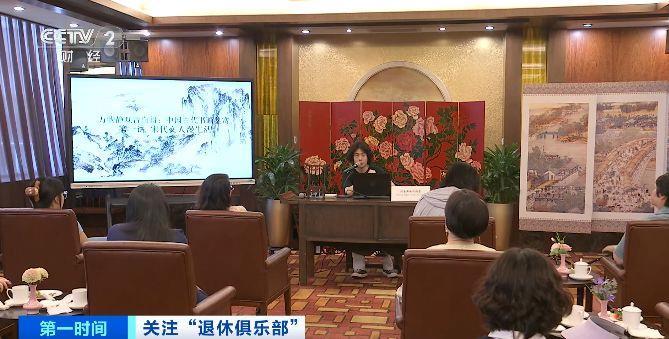 最近,一批新式的退休沙龙,正在交际媒体引发重视。许多退休人士表明:在这里找回了年青的感觉。现在,刚刚鼓起的退休沙龙,大多以安排潮流活动和抢手课程为主,这些沙龙的主办人也在测验与商家协作,拓宽新的银发消
...[详细]
最近,一批新式的退休沙龙,正在交际媒体引发重视。许多退休人士表明:在这里找回了年青的感觉。现在,刚刚鼓起的退休沙龙,大多以安排潮流活动和抢手课程为主,这些沙龙的主办人也在测验与商家协作,拓宽新的银发消
...[详细]
-
华中首台浅层X射线体系落地三年 千余瘢痕疙瘩患者“祛疤焕肤”
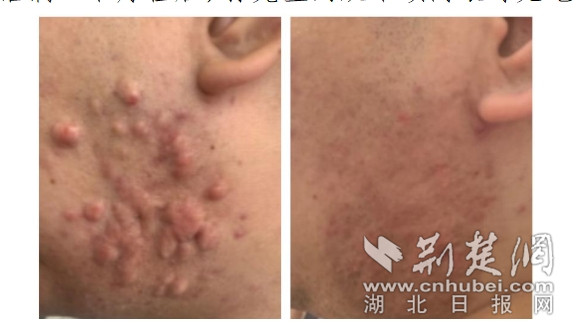 荆楚网湖北日报网)讯记者 黄涛 通讯员张梦石 谯玲玲 蔡微娜)因青春痘导致下颌部瘢痕疙瘩,饱尝困扰的30岁患者孙先生化名),近来在武汉市榜首医院皮肤科经过浅层X射线医治成功“祛疤焕肤”。14日从该院得
...[详细]
荆楚网湖北日报网)讯记者 黄涛 通讯员张梦石 谯玲玲 蔡微娜)因青春痘导致下颌部瘢痕疙瘩,饱尝困扰的30岁患者孙先生化名),近来在武汉市榜首医院皮肤科经过浅层X射线医治成功“祛疤焕肤”。14日从该院得
...[详细]
-
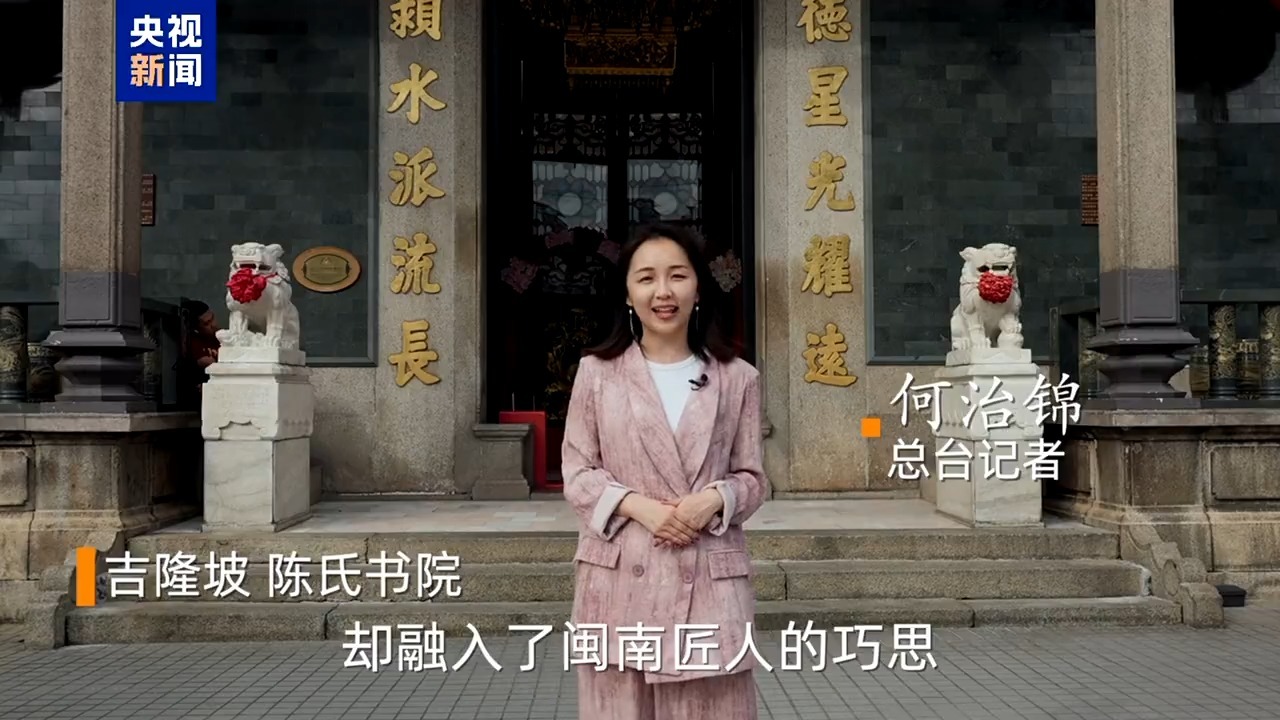 在马来西亚,我国飞檐与摩尔穹顶会在同一片天空下对话,椰浆饭的浓郁与海南鸡饭的幽香在街头混搭,而咱们的耳边会响起客家话、马来语、英语、粤语……相织交杂。千百年来,漂洋过海的华人族群把乡愁揉进日常,用最日
...[详细]
在马来西亚,我国飞檐与摩尔穹顶会在同一片天空下对话,椰浆饭的浓郁与海南鸡饭的幽香在街头混搭,而咱们的耳边会响起客家话、马来语、英语、粤语……相织交杂。千百年来,漂洋过海的华人族群把乡愁揉进日常,用最日
...[详细]
-
 湖北日报讯记者曾莉、通讯员章晟)4月14日,在武汉市中心医院,“00后”公务员王磊化名)正静静地躺在病床上。鲜红的血液经过导管慢慢流出,经过血细胞分离机的循环,又回到他的体内。这位来自黄石大冶的年轻人
...[详细]
湖北日报讯记者曾莉、通讯员章晟)4月14日,在武汉市中心医院,“00后”公务员王磊化名)正静静地躺在病床上。鲜红的血液经过导管慢慢流出,经过血细胞分离机的循环,又回到他的体内。这位来自黄石大冶的年轻人
...[详细]
-
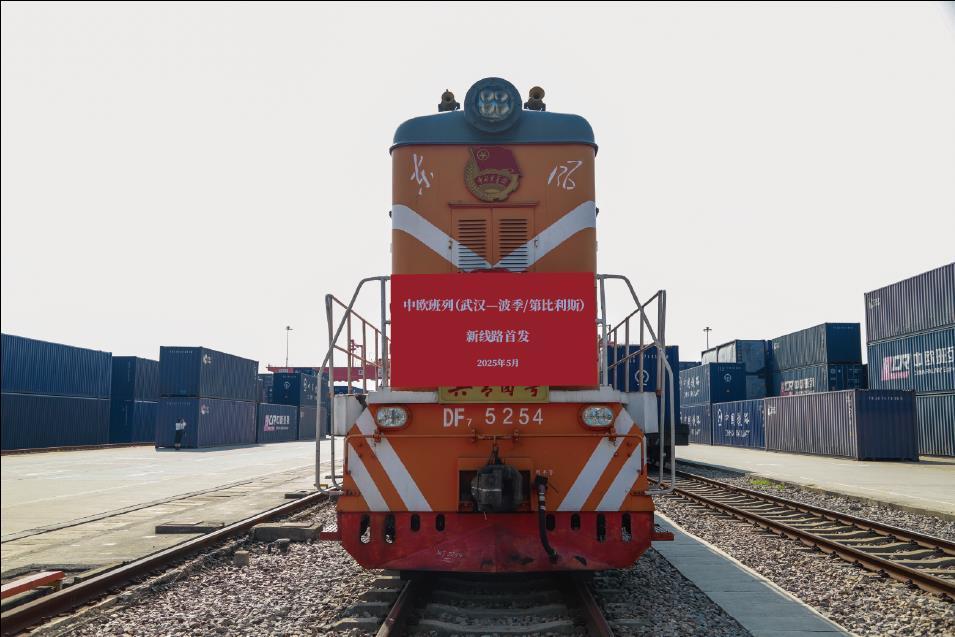 极目新闻记者 潘锡珩。通讯员 徐晨。5月24日,中欧班列武汉—霍尔果斯—波季/第比利斯)从中铁联集武汉中心站鸣笛启航,这是中欧班列武汉)初次将格鲁吉亚作为意图站,拓荒的一条跨里海世界运送新线路。极目新
...[详细]
极目新闻记者 潘锡珩。通讯员 徐晨。5月24日,中欧班列武汉—霍尔果斯—波季/第比利斯)从中铁联集武汉中心站鸣笛启航,这是中欧班列武汉)初次将格鲁吉亚作为意图站,拓荒的一条跨里海世界运送新线路。极目新
...[详细]
-
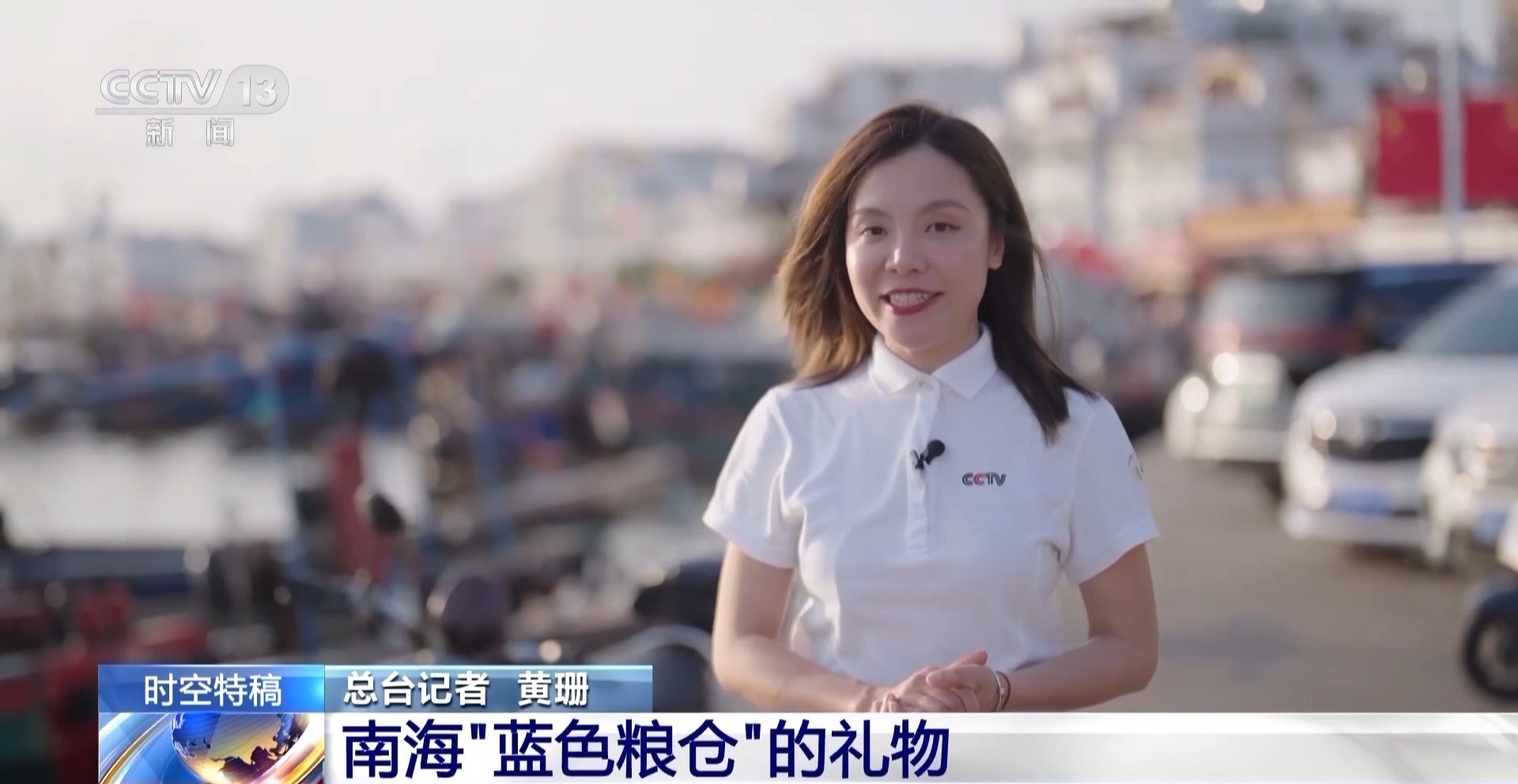 南海渔业资源丰富,具有全国面积最大的海域,是我国展开深远海饲养的重要区域。到2024年末,海南深远海饲养水体规划近850万立方米,其间新增饲养水体89万立方米,是2023年新增量的2倍。2024年,海
...[详细]
南海渔业资源丰富,具有全国面积最大的海域,是我国展开深远海饲养的重要区域。到2024年末,海南深远海饲养水体规划近850万立方米,其间新增饲养水体89万立方米,是2023年新增量的2倍。2024年,海
...[详细]
-
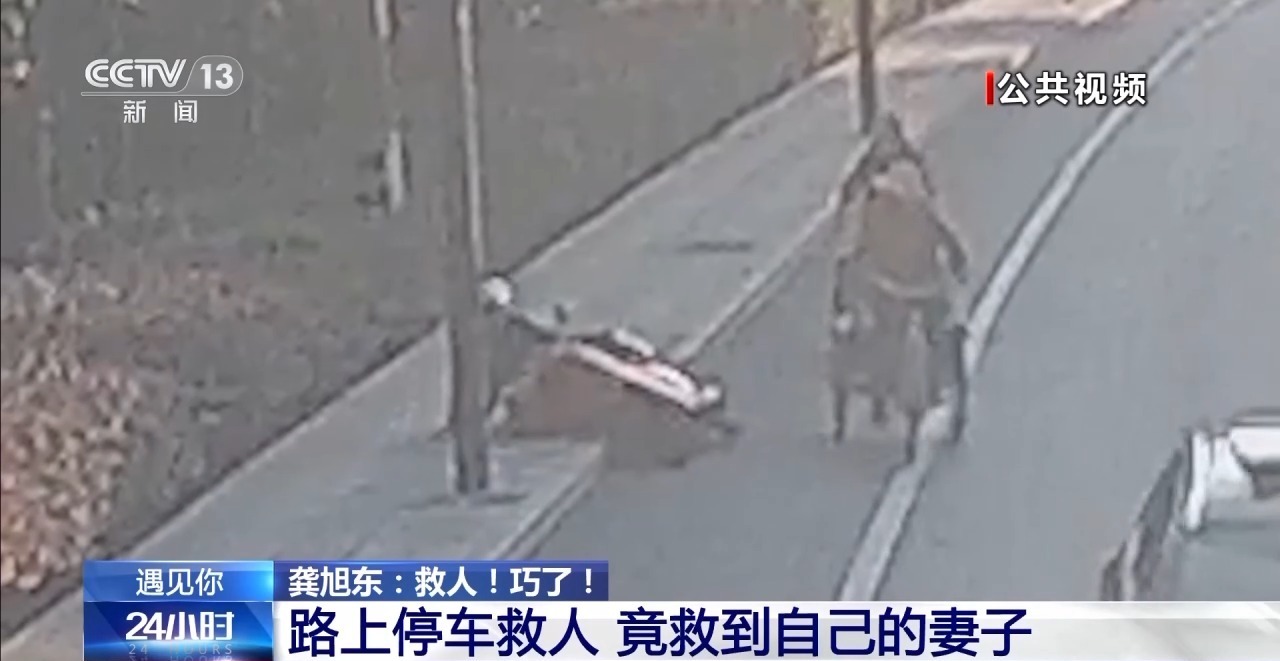 前不久,在浙江杭州萧山区瓜沥镇东恩村街头,一名女子骑车时忽然倒地,一群素昧生平的路人纷繁伸出援手,上前救援。而开车路过期,泊车冲过去救人的龚旭东,在看清对方面庞的一会儿,却吃了一惊。本来,那位他正要救
...[详细]
前不久,在浙江杭州萧山区瓜沥镇东恩村街头,一名女子骑车时忽然倒地,一群素昧生平的路人纷繁伸出援手,上前救援。而开车路过期,泊车冲过去救人的龚旭东,在看清对方面庞的一会儿,却吃了一惊。本来,那位他正要救
...[详细]
-
 中新社洛杉矶4月14日电 (记者 张朔)美国圣迭戈14日产生5.2级地震,加利福尼亚州南部多地震感显着。据美国地质调查局地震信息网监测成果,此次地震产生于当地时间上午10时8分,震中坐落加州圣迭戈郡朱
...[详细]
中新社洛杉矶4月14日电 (记者 张朔)美国圣迭戈14日产生5.2级地震,加利福尼亚州南部多地震感显着。据美国地质调查局地震信息网监测成果,此次地震产生于当地时间上午10时8分,震中坐落加州圣迭戈郡朱
...[详细]
-
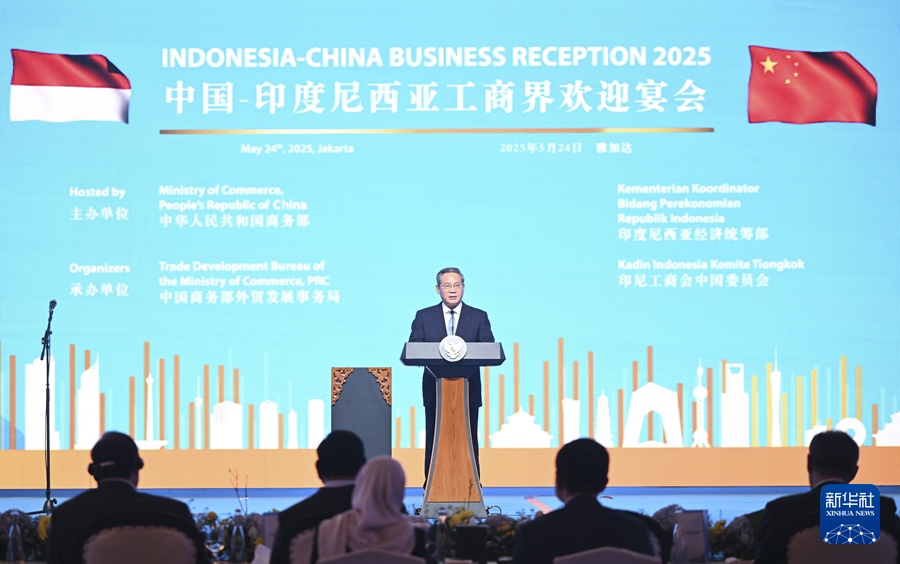 当地时间5月24日晚,国务院总理李强在雅加达同印度尼西亚总统普拉博沃一起到会我国-印尼工商界晚宴并致辞。新华社记者 李响 摄。新华社雅加达5月24日电记者李凯曹嘉玥)当地时间5月24日晚,国务院总理李
...[详细]
当地时间5月24日晚,国务院总理李强在雅加达同印度尼西亚总统普拉博沃一起到会我国-印尼工商界晚宴并致辞。新华社记者 李响 摄。新华社雅加达5月24日电记者李凯曹嘉玥)当地时间5月24日晚,国务院总理李
...[详细]
-
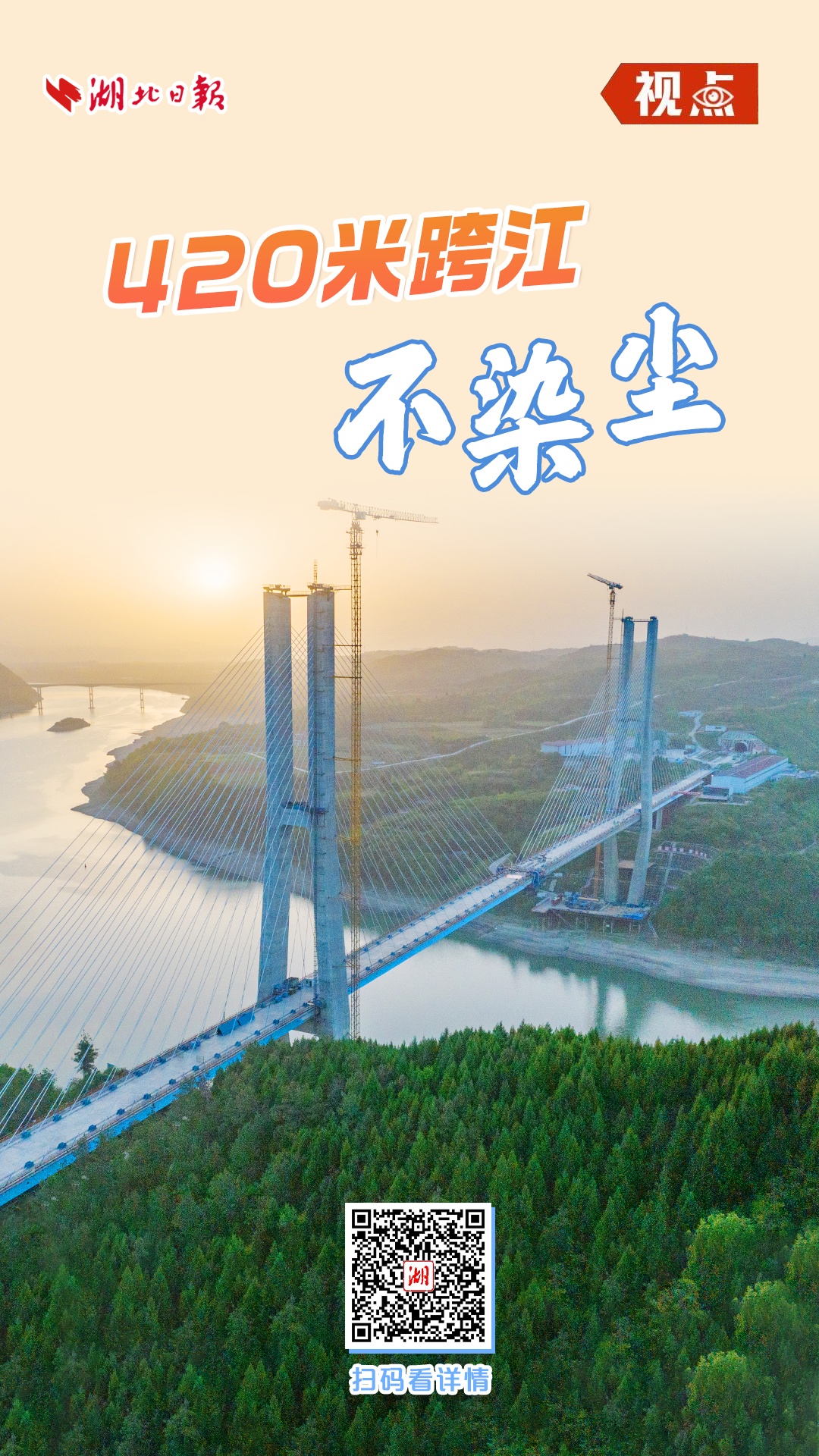 图/文。湖北日报全媒记者 遗迹 通讯员 沈正华 古建敖。4月14日上午,国内最大跨度梁桁组合结构斜拉桥——西十高铁汉江特大桥在十堰市郧阳区顺畅合龙。凌晨时分,施工人员在合龙处捆扎钢筋。施工人员为合龙处
...[详细]
图/文。湖北日报全媒记者 遗迹 通讯员 沈正华 古建敖。4月14日上午,国内最大跨度梁桁组合结构斜拉桥——西十高铁汉江特大桥在十堰市郧阳区顺畅合龙。凌晨时分,施工人员在合龙处捆扎钢筋。施工人员为合龙处
...[详细]

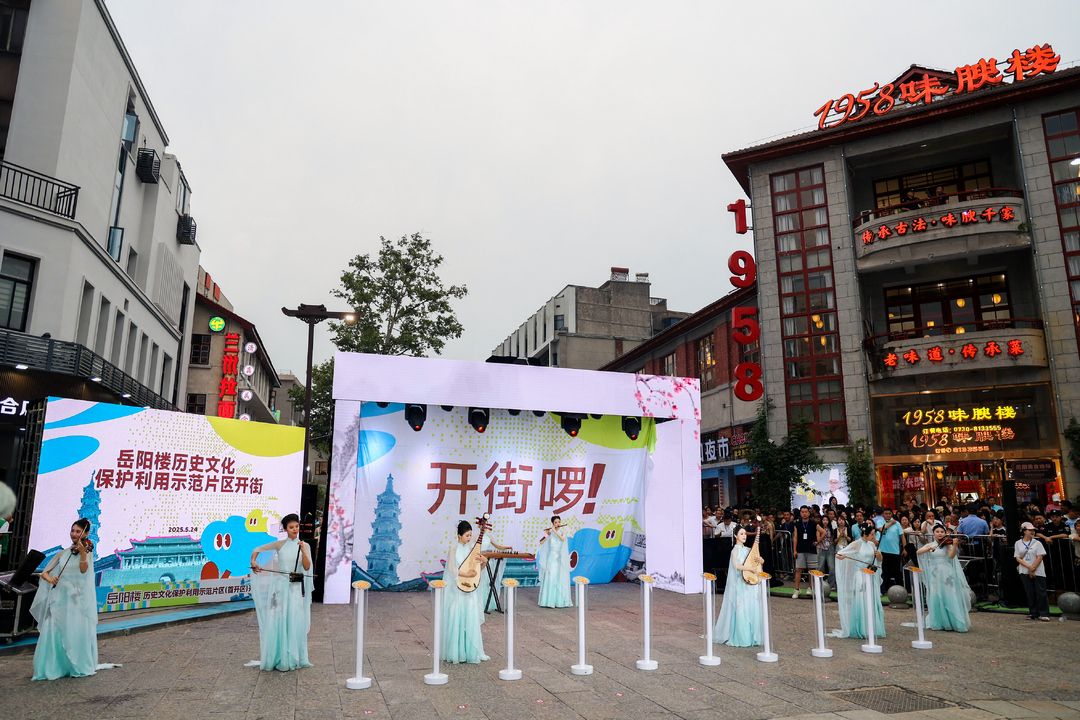 承扬千年文脉 再展巴陵盛景 岳阳楼历史文化维护使用示范片区开街
承扬千年文脉 再展巴陵盛景 岳阳楼历史文化维护使用示范片区开街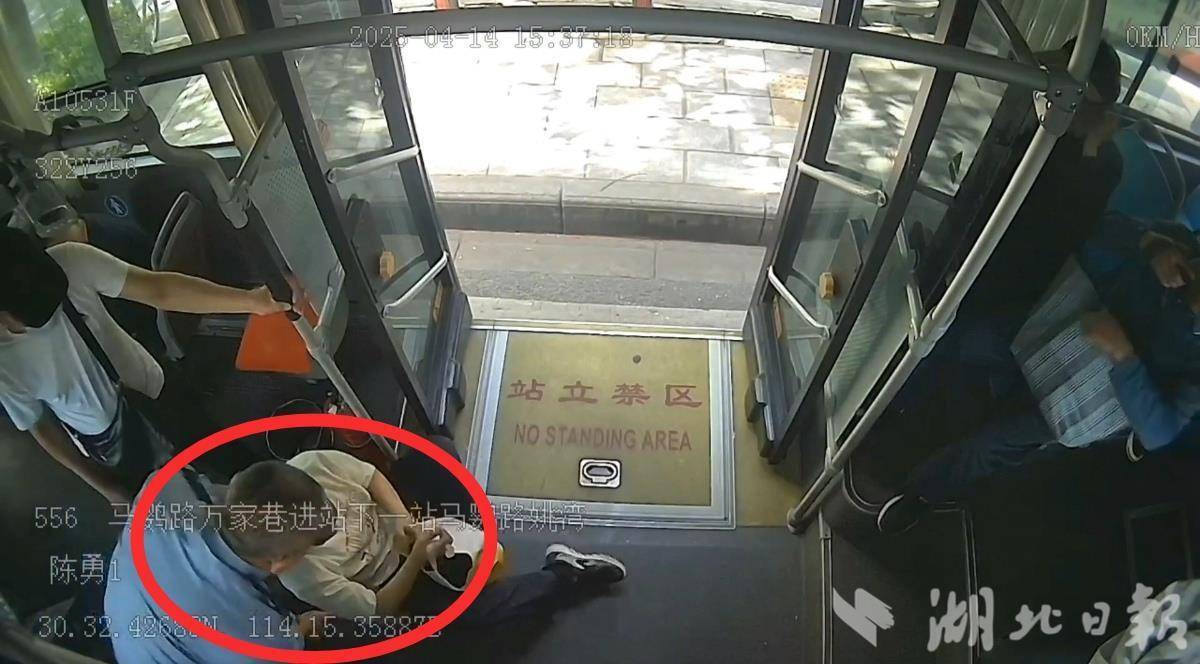 武汉公交演出暖心救援:乘客突发不适晕倒 司乘合力救助转危为安
武汉公交演出暖心救援:乘客突发不适晕倒 司乘合力救助转危为安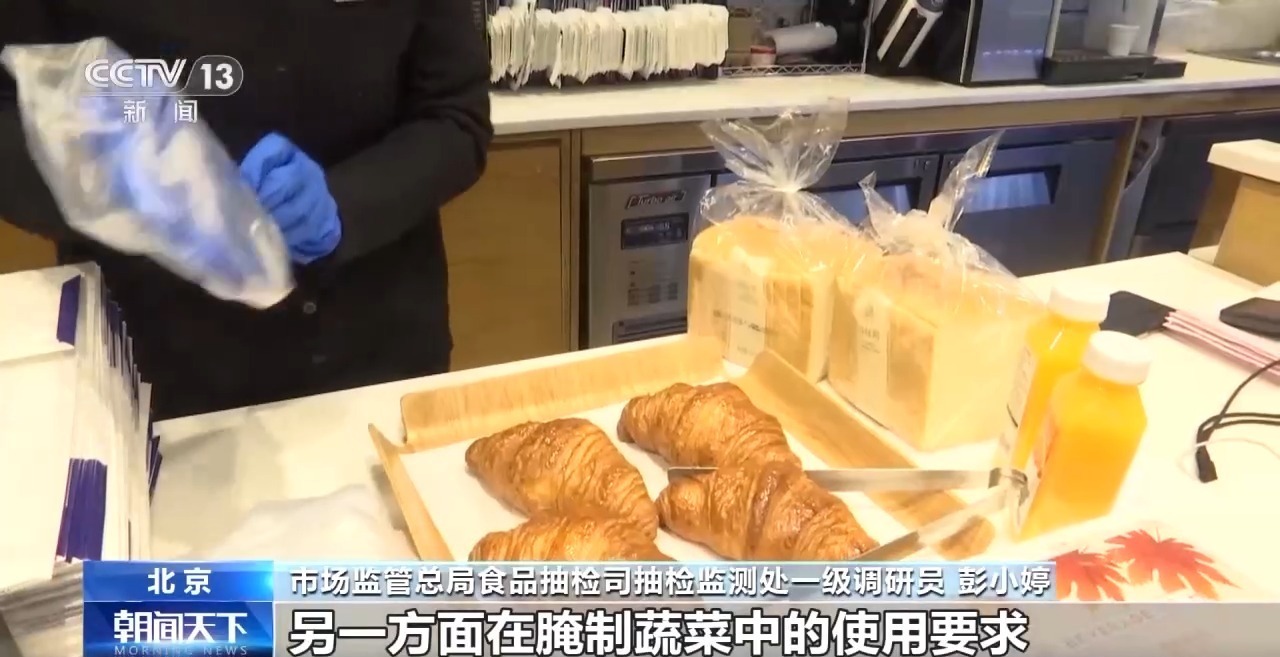 食物添加剂使用情况专项抽检成果发布 2批次样品不合格
食物添加剂使用情况专项抽检成果发布 2批次样品不合格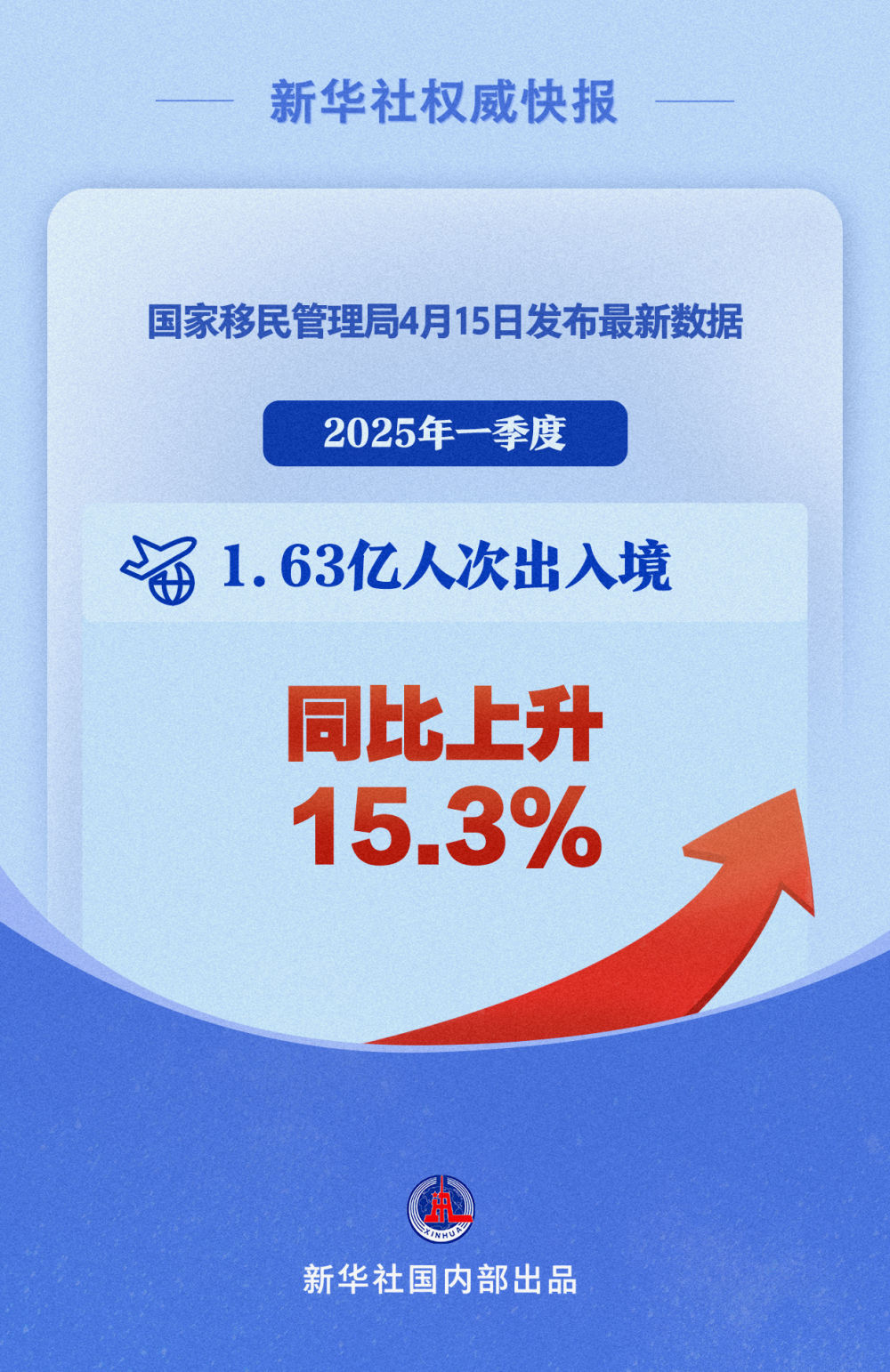 新华社威望快报|一季度1.63亿人次出入境 同比上升15.3%
新华社威望快报|一季度1.63亿人次出入境 同比上升15.3% 德国第一季度国内生产总值环比增加0.4%
德国第一季度国内生产总值环比增加0.4%
